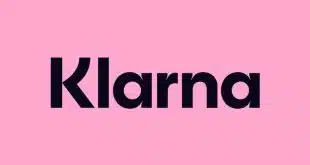MasterCard Worldwide is playing it both ways regarding its new interchange rate schedule set to take effect in April. Internet retailers will see their acceptance costs decline for some MasterCard credit card transactions but rise for others. It depends on whether the card used for a transaction is a “Core Value” or “Enhanced Value” consumer credit card under the Purchase, N.Y.-based network's recently issued, 100-page rate schedule governing interchange, the amount of a bank card sale that the merchant acquirer must pass on to the card issuer. Acquirers simply pass the controversial expense on to their merchant clients. MasterCard's current rate sheet separates consumer credit cards from its World Elite premium cards. The new Core Value and Enhanced Value designations essentially divide those non-World Elite consumer credit cards into two groups. The effect will be to impose higher merchant pricing on some rewards cards that aren't part of the World Elite family, which already carries higher interchange than conventional credit cards. MasterCard refuses to define what differentiates Core from Enhanced in detail, but it mostly depends on how rich or skimpy the card's rewards package is. “As a general matter, the Core Value cards are going to be cards that either do not have a rewards component or a rewards component below a certain threshold,” says Joshua Peirez, MasterCard group executive of global public policy. The main current rates for consumer credit Internet transactions are Merchant Universal Cardholder Authentication Field (UCAF) and Full UCAF, at 1.64% plus 10 cents and 1.74% plus 10 cents, respectively. (Full UCAF means the issuer provides cardholder authentication.) When the new rates take effect, the Core Value Merchant and Full UCAF rates will be 1.58% plus 10 cents and 1.68% plus 10 cents, respectively. On a $100 sale, those rate reductions represent cuts of 3.4% and 3.3%, respectively. But Enhanced Value transactions will raise interchange costs about 5% for online merchants. The rates will be 1.73% plus 10 cents for Merchant UCAF and 1.83% for Full UCAF, representing respective increases of 5.2% and 4.9% on a $100 sale. Peirez does not have data about what percentage of transactions or how many consumer credit cards will be deemed Core or Enhanced. The designations are new with the bulletin to merchant acquirers announcing the interchange rates, he says, and MasterCard is still getting data from its members. The purpose of the new rate schedule, including the new Core Value and Enhanced Value designations, is to generate the most transaction volume possible by encouraging card acceptance by merchants, card issuance by financial institutions, and usage by cardholders. “When setting interchange rates, we are looking at maximizing the output of the MasterCard system,” he says. The built-in interchange tension between merchants, who want lower pricing, and issuers, who want more transaction revenue, has produced quakes since the card industry's earliest days. And today, MasterCard and Visa USA as well as several large banks are defendants in a number of lawsuits filed by individual companies as well as a class action filed in U.S. District Court in Brooklyn, N.Y. Peirez declined to comment on pending litigation. Other highlights of the new schedule: –Following through on a 2006 promise to help petroleum retailers stung by higher card-acceptance costs as gas prices rose, MasterCard instituted a 95-cent interchange cap on credit, World Elite, and signature debit card gasoline purchases. –Core Value interchange rates for the two lowest-volume tiers of face-to-face transactions with required magnetic-stripe data will fall. The so-called Merit 3-Tier 3 rate, which requires $750 million in credit volume in 2006, will decline 1.8% on a $100 sale, as will the corresponding Enhanced Value rate. The Core Value Merit 3-Base rate for the smallest retailers will decline 3.4%, from 1.64% plus 10 cents to 1.58% and 10 cents. But the equivalent Enhanced Value rate will rise 5.2%, from 1.64% and 10 cents to 1.73% plus a dime. –Signature-based debit card interchange pricing for the most common retail and Internet transactions remains unchanged. While the rate schedule with its operating requirements officially becomes effective in April, many of the individual price changes actually don't take effect until June. Both MasterCard and Visa now post their rates at their Web sites. The new MasterCard rates and related information are available at www.mastercard.com/us/wce/PDF/14992_MasterCard_Interchange_Rates_and_Criteria_-_April_2007.pdf






